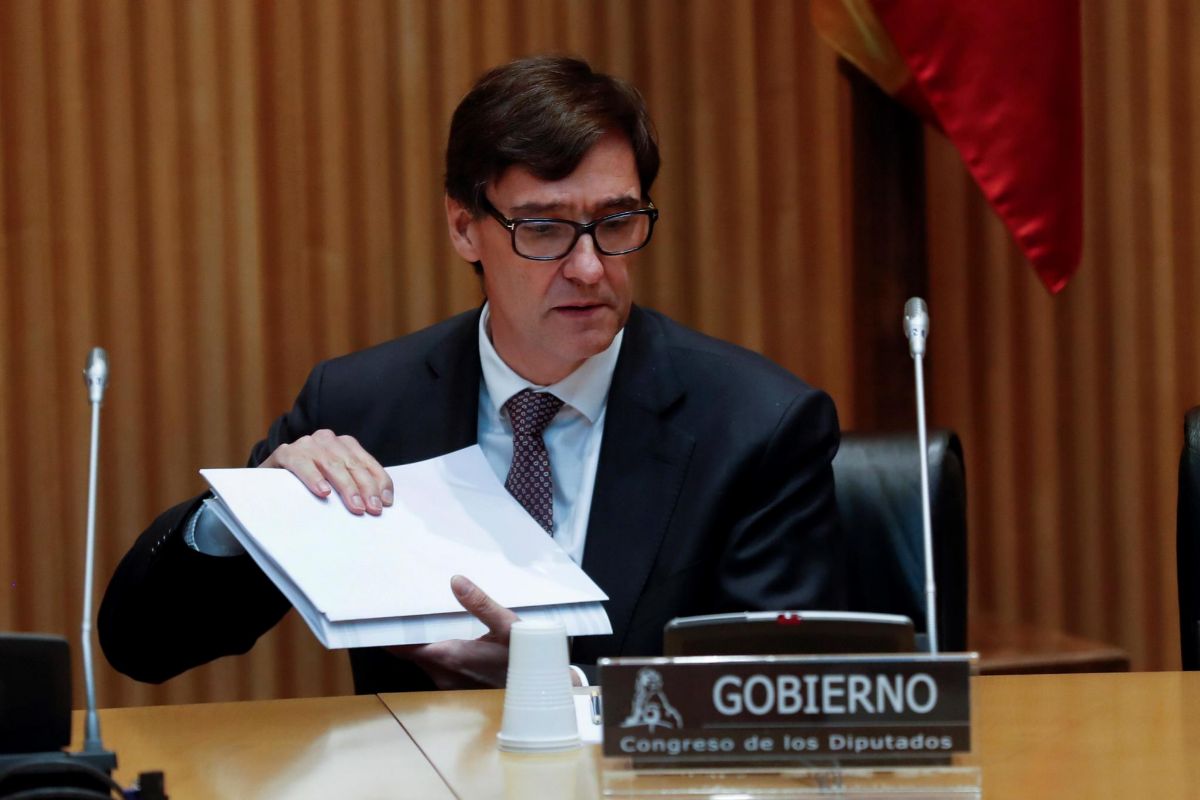- Coronavirus: last minute
The Ministry of Health recognizes the failed tests that it acquired from the Chinese company Shenzhen Bioeasy Biotechnology were not 8,000, but more than 50,000. In other words, in addition to those that were distributed -without prior validation- to the Community of Madrid, there were another 50,000, who "arrived in different batches", according to sources in the department confirmed by the department led by Salvador Illa.
Health insists that these tests were never used and that they have already been returned. And that the 640,000 listed by Bioeasy will obviously not be of that type, but will have a higher certification, and proven reliability.
The director of Health Emergencies, Fernando Simón, explained at a press conference that tests were carried out on the first batch, and "those tests, like the following remittances, were returned, and the company will provide other tests that do respond to the necessary specifications and sensitivity. "
"Soon we will have these rapid tests that do seem to have the necessary quality," added Simon. Meanwhile, in Spain about 15,000 tests are performed per day, using the slow but accurate test, known as PCR.
Minister Illa reiterated, at a press conference in La Moncloa, that the purchase was made through a regular supplier. "The first 9,000 have not passed the quality systems." "The 50,000 units that had arrived have not been distributed, and the 640,000 [wired] are going to be replaced, all by others with the standards that we demand," he added.
Illa has also announced that the new tests that will be received shortly (more than 5 million tests) will be "verified" before they are delivered to the autonomous regions, contrary to what was done with the more than 8,000 that were delivered to the Community of Madrid.
Rapid tests to detect coronavirus infection purchased by the Chinese Ministry of Health do not work well. They have a sensitivity of 30%, when they should be over 80%. And what does that mean? "That the tests are not valid, because they give many false negatives," health officials from the Community of Madrid explained to this newspaper.
The rapid test scandal has "pissed off" healthcare workers, who were the first recipients of these diagnostic tests. CSIF , the majority public sector union, has issued a harsh statement in which it underlines that "public health personnel face the weekend with outrage, disbelief and exhaustion at the latest information on the acquisition of failed tests, the shortage of means, the saturation of the centers ".
To this "are added statements by political leaders at national and regional level that do not help our professionals and spread a general feeling of anger," he adds. "CSIF continues to insist on the need to carry out tests on health personnel currently in quarantine so that they can return to their posts," the union added.
The main opposition political parties have been quick to demand accountability. Both the PP and Vox have sued the government for the administrative file regarding the purchase of the Covid-19 rapid tests. The popular ones have demanded the appearance of the Minister of Finance, María Jesús Montero, in addition, for her involvement in the centralization of purchases, and after it was learned that her department requested "containment" of health spending from the autonomous communities.
According to the criteria of The Trust Project
Know more- China
- Madrid
- Madrid's community
- Vox
- Salvador Illa
- PP
- Maria Jesus Montero
- Spain
Coronavirus Salvador Illa affirms that "the curve of the epidemic is reaching its peak"
CataloniaThe Catalan toilets speak before the increase in cases: "We have four days left for the collapse"
The coronavirus decimates toilets due to the delay in the protection material

